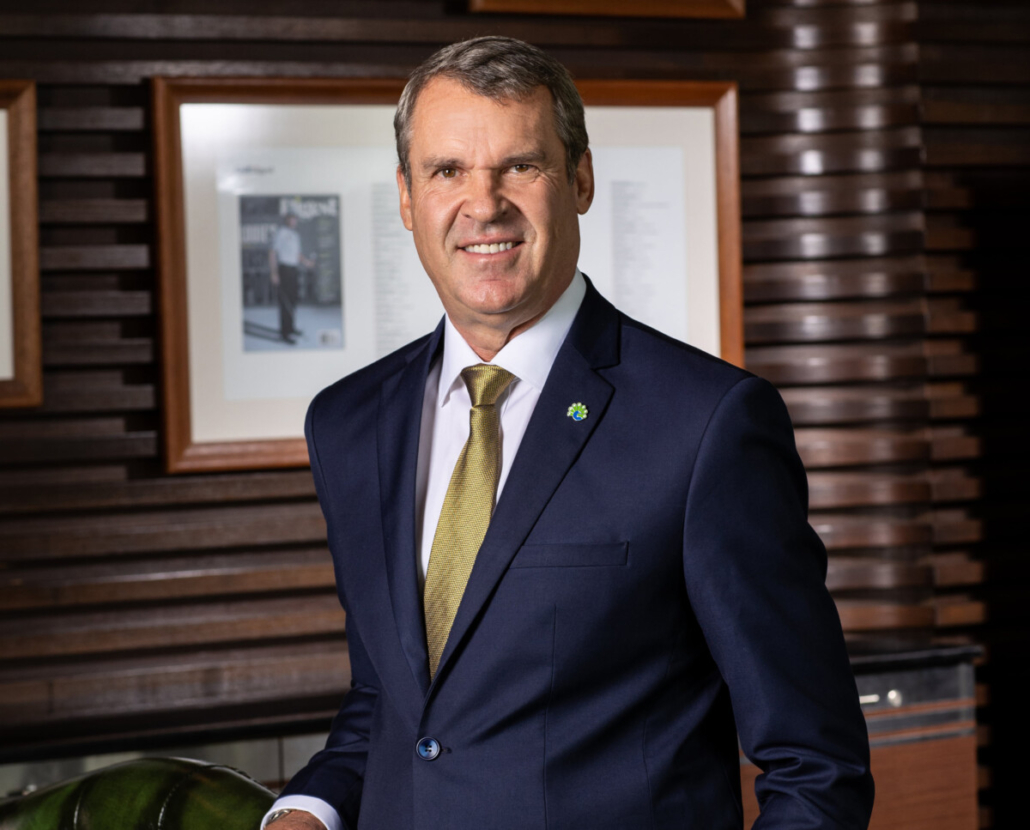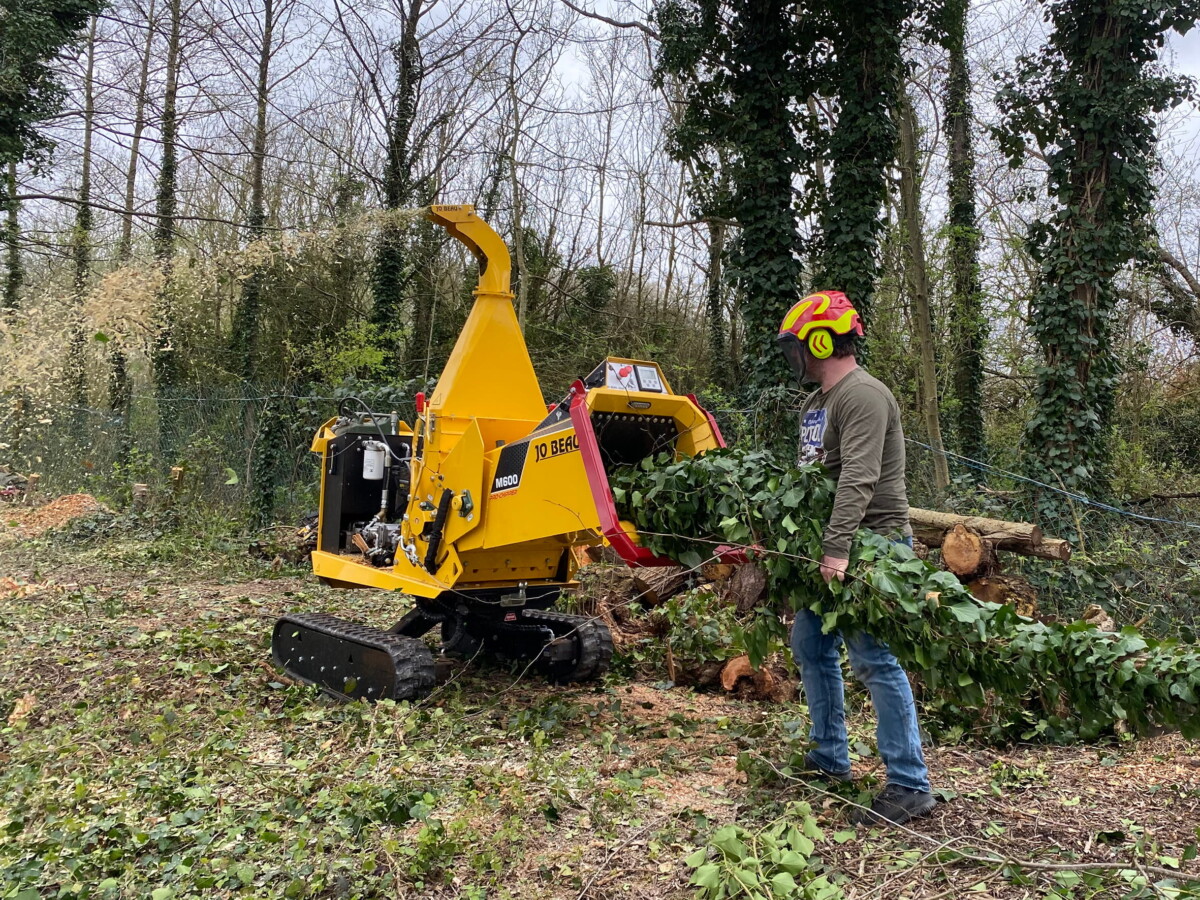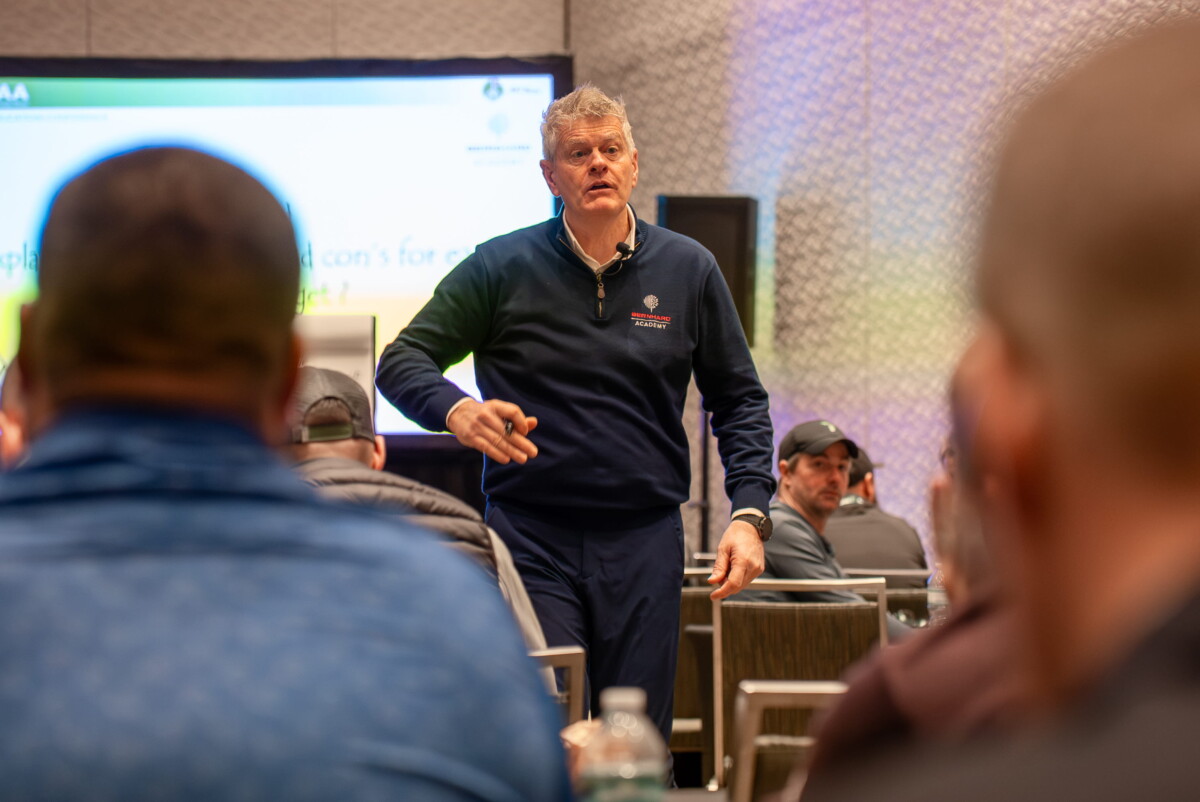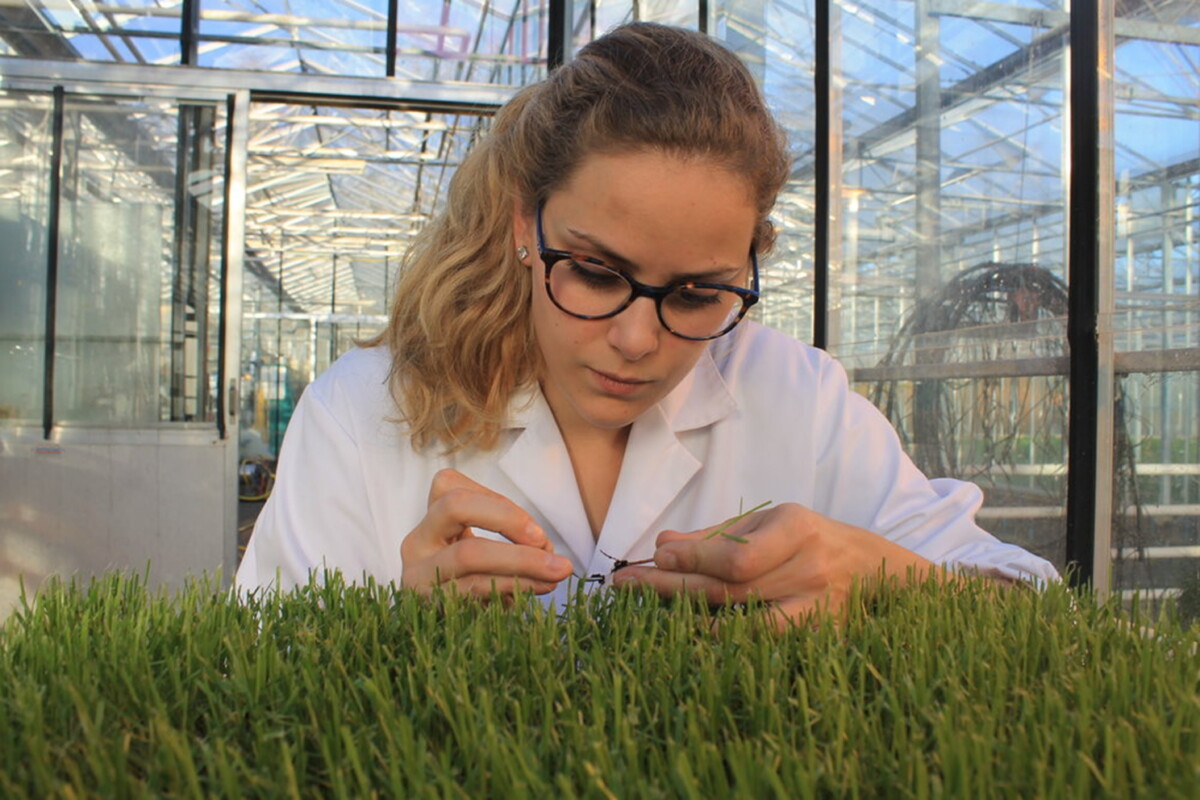The Best Golf Course in the World: Scott MacCallum chats with Andy Johnston, the man who has steered Sentosa Golf Club to the top of the golfing tree.
It’s just after Christmas so I’m guessing that your quizzing skills are still fairly sharp. So here’s one for you.

The Best Golf Course in the World
Which of these golf courses is the odd one out? The Old Course, St Andrews; Augusta National, the Serapong Course at Sentosa Golf Club, Singapore; Shinnecock Hills, New York, or Carnoustie?
The Answer?
None of them! They have all been voted The Best Golf Course in the World by the World Golf Awards.
Of course, Serapong is also the only course among that elite group not to have hosted a Major, and the only one in Asia, but it’s my quiz and I decide the answers!
Seriously though with The Old Course having won the category each of the first five years following the Awards’ inception in 2014, Carnoustie was the next winner, then Augusta National who retaining the title the next year, before its American cousin, Shinnecock.
The triumph of Sentosa Golf Club, the first Asian winner, late last year, did raise a few eyebrows. Not least from the Club’s own General Manager and Director of Agronomy, Andy Johnston.
“Best golf course in the world. I mean, Holy Smoke – really? I was pinching myself,” recalled Andy.

The Best Golf Course in the World
“I was floating of Cloud Nine, and still am,” added the American, who, as a golf course architect, first became associated with the club when he was brought in to do some remodelling work in 2014, and never really left.
He was also blown away by the reception he received from the Sentosa team when he arrive back from the airport having collected the Award.
“It takes a world class team to make a world class club and when you talk about the best in the world the greeting I got from 80 plus of them was pretty special.”
Being the first Asian golf club to win the award, and following in such illustrious company is significant.
“It shows that the growth of Asian golf is gathering pace and how much more progress we are making. It also shows that we are getting to the point where we are becoming competitive within that ‘Big Boy’ fraternity.”
So what it is about Sentosa Golf Club, and the Serapong course in particular, that has enabled this huge geographic breakthrough? Who better to tell us, than Andrew himself.

The Best Golf Course in the World
“It’s one of those tracks that touches your soul. As soon as you head off to the 1st tee you are thinking that this is something special – you know immediately that it is special. Then when you get to the 2nd you get a peek at what’s coming. Hit the 3rd and you have the entire world in front of you. You’re looking down on the town three kilometres away and you are on an elevated spot which sits over the entire bay. You see the ship yards down below you and, downtown, all the sky scrapers. The next five or six holes are all different, and each one memorable. The whole course has a unique playing strategy and you can’t wait to play it again and again.
“You just can’t get enough of it,” enthused Andy.
But that wasn’t always the case for the Serapong, and Sentosa Golf Club, founded by the then Prime Minister of Singapore and which celebrates its 50th birthday this year.
“Back in 2005 the Serapong wasn’t even the best course in town, never mind the world, but at the time I was working on a project in Beijing when I got a call from a friend of mine saying that Sentosa was looking for an architect. They weren’t looking at a huge project just some fairly small tweaks so I jumped on a plane and made a pitch to the Green Committee.
“I must have made a really compelling case because we signed an agreement, almost on a napkin and I got to work the next day.”
With the project completed, six months later the club called Andy to say that he was still the club’s architect and that they wanted to renovate the Serapong fully and was he interested. Was he ever!
“I literally got on a plane that night and came over. The club had a new business plan and wanted to get into hosting tournaments,” said Andy.
The course had been designed originally by Ron Fream and was built on 80% reclaimed land.
“Ron did an unbelievable job because he tracked the course when it was basically still in the ocean. I’ve seen pictures of him in a boat pointing out a green. How he was measuring, in the life of me, I have not a clue.”
But while the course was excellent, it had really small greens which couldn’t take the traffic and while the bunkers were ok they didn’t support modern day golf strategy.
“So we made some significant changes to the course’s personality. That’s when the course started to get going to where it is today. We introduced massive greens with subtle undulations, we increased the bunkering and made these huge tees so we could take the traffic and have surfaces fit for championship golf. That’s when the engine really got running,” said Andy, who added that they now cut the tees to the same height as the greens.
The tees are Platinum Paspalum, because it recovers quickly from divot damage, with the rest of the course Zoysia.

The Best Golf Course in the World
It wasn’t an overnight success, however, and from 2006 to 2010 it was a difficult time for the club. Then, with 60 days to go until a Singapore Open, and having just lost their Superintendent, Andy took another phone call from the club asking for help.
“The previous General Manager called me and asked that, as nobody knew the property as well as me, would I help them out.
“I have an agronomy background – of all the skills I have, design, operation, agronomy, agronomy is the thing I really excel at, and ultimately we were able to pull a rabbit out of a hat On the Monday pro-am we were running at 13 on the stimp. Singapore had never seen speeds faster than that.
“We’d exceeded everybody’s expectations when it came to conditioning and I just never went home after that, and I hadn’t meant to stay!” he revealed.
And not only that, in addition to his role of Director of Agronomy he found himself General Manager when his predecessor left.
“I didn’t mean to become GM. I was just told that I was going to be GM, even when I told them I didn’t want to be GM. Even today I hate being GM… kind of!” he added with a smile.
But it is still the golf courses, there is also the 18 hole Tanjong course, rather than the food and beverage side of things, which rocks his boat.
“I’m the first person here every morning at 5.30 and that has never changed in the 14 years I’ve been here. I get every morning started with the crew and work closely with our Superintendent, Irishman Rodney McEwan.
“I couldn’t have a better sidekick, if I could call him that. He takes it personally and it means something to him. No matter what I dish out to him it gets done and it’s quite incredible how he does it.”
And it’s not an easy gig maintaining a golf course on the equator.

The Best Golf Course in the World
“I’ve worked in every corner of the world and I think this is the most challenging. We have every disease known to man sitting in the soil 365 days a year, just waiting for the right conditions to flourish.
“Everything is full on. Most of the world goes through the seasons and there are times when you have to work hard and there are heavy growth periods but there are also off periods and simpler windows. It never stops here for us. Every day is full on.
“To put it in a UK context. August is probably the most difficult time of the year for you, because it is the hottest and the most humid. Guys are chasing hot spots and there are disease pressures coming out of their ears. Every day is August for us and our aim is to be thinking ahead of Mother Nature. That’s the goal. If you can be ahead of Mother Nature you will win.”
With two golf courses and the surrounding grounds to maintain Andy has an agronomy team of 75.
“It sounds a lot but if you break it down it’s probably comparable with a South Florida course. We have 25 guys on each course, there are eight mechanics, four in the admin office, then there is a small landscaping team of six or seven. So it’s not as big as it sounds.”
So how does he keep everyone motivated to achieve the standards that takes a course to Best in the World status?
“We have something called the 10 Five Star Touch points. In at number eight is ‘Earn Your Five Stars Every Day’. I say this to the team on such a routine basis that they are sick of me.
“No-one gives a rat’s ass about the awards we’ve won – and they have won a plethora of huge awards including World’s Best Eco-Friendly Golf Facility three years in a row – after that day. They measure us by the experience they have had on that day. So every morning I tell them to wake up and earn their five stars.”
Having reach the pinnacle what now for Sentosa Golf Club?
“The Chairman asked me the same thing not long ago and I said that the runway was still very long and we still had a lot to that we could do. We may not win awards like this every year but we are attempting to build a brand and it is extremely important that we can continue to expand upon that and deliver the best service possible and produce the best conditions possible.
“The ceiling is unlimited on what we are going to achieve.”
Key to that is Sentosa’s position on the planet.
“When you look at Asia, albeit Singapore is a small city state, we are in the best spot. We have the best airport, which is a hub where everything comes in and out. It is the safest city in Asia. You don’t have to worry about that when you get here whole at the club we are surrounded by 17 high end hotels. We have everything at our fingertips to continue to grow.
“We are no longer just a great golf course. We are a brand, and that is what I want to continue to develop.”
And with the attraction of playing the best course in the world, golfers will be swarming around Sentosa like bees to the honeypot and spreading the name of Sentosa to all their golfing buddies.


























